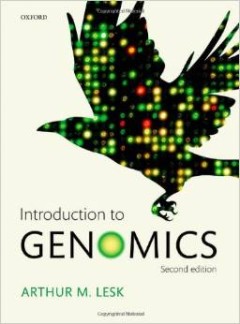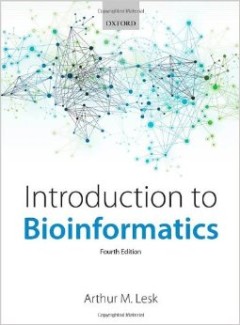Filter by

Introduction to genomics
- Edition
- -
- ISBN/ISSN
- 9780199564354
- Collation
- -
- Series Title
- -
- Call Number
- BI175
- Edition
- -
- ISBN/ISSN
- 9780199564354
- Collation
- -
- Series Title
- -
- Call Number
- BI175

Introduction to bioinformatics fourth edition
- Edition
- -
- ISBN/ISSN
- 9780199651566
- Collation
- -
- Series Title
- -
- Call Number
- BI066
- Edition
- -
- ISBN/ISSN
- 9780199651566
- Collation
- -
- Series Title
- -
- Call Number
- BI066

Introduction to protein science : architecture, function, and genomics
Introduction to Protein Science, Second Edition, relates the study of proteins to the context of modern high-throughput data streams of genomics and proteomics. It also provides a balanced treatment of the relationship between computational and experimental methods. The text is enhanced by marginal notes, exercises, problems, and "weblems" that develop students' database and computational serve…
- Edition
- 2nd
- ISBN/ISSN
- 9780199541300
- Collation
- xix, 455 p. : ill. : ind. ; 28 cm.
- Series Title
- -
- Call Number
- 572.6 Les i

Introduction to genomics
Our genome is the blueprint to our existence: it encodes all the information we need to develop from a single cell into a hugely complicated functional organism. But how do we identify the genes that make up our genome? How do we determine their function? And how do different genes form the regulatory networks that direct the processes of life?
- Edition
- 2nd
- ISBN/ISSN
- 9780199564354
- Collation
- xxii, 397 p. : ill. : ind. ; 27 cm.
- Series Title
- -
- Call Number
- 572.86 Les i

Introduction to bioinformatics fourth edition
Introduction to Bioinformatics shows how bioinformatics can be used as a powerful set of tools for retrieving and analyzing this biological data, and how bioinformatics can be applied to a wide range of disciplines such as molecular biology, medicine, biotechnology, forensic science, and anthropology. This new edition contains two new chapters, with significantly increased coverage of metabolic…
- Edition
- Fourth Edition
- ISBN/ISSN
- 9780199651566
- Collation
- xxii, 371 p. : ill. : ind. ; 27 cm.
- Series Title
- -
- Call Number
- 572.80285 Les i
 Computer Science, Information & General Works
Computer Science, Information & General Works  Philosophy & Psychology
Philosophy & Psychology  Religion
Religion  Social Sciences
Social Sciences  Language
Language  Pure Science
Pure Science  Applied Sciences
Applied Sciences  Art & Recreation
Art & Recreation  Literature
Literature  History & Geography
History & Geography